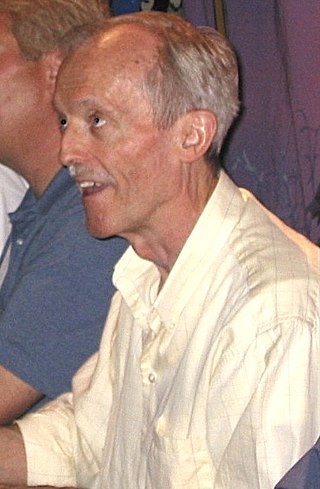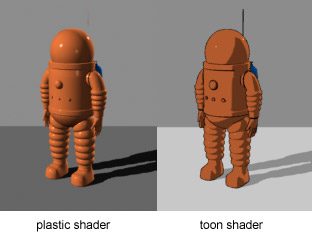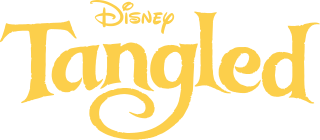
Animation is the method by which still images are manipulated to create moving images. In traditional animation, images are drawn or painted by hand on transparent celluloid sheets to be photographed and exhibited on film. Today, many animations are computer animations made with computer-generated imagery (CGI). Stop motion animation, in particular claymation, has continued to exist alongside these other forms.

Computer animation is the process used for digitally generating animations. The more general term computer-generated imagery (CGI) encompasses both static scenes and dynamic images, while computer animation only refers to moving images. Modern computer animation usually uses 3D computer graphics to generate a three-dimensional picture. The target of the animation is sometimes the computer itself, while other times it is film.
Modern animation in the United States from 1989 to 2004 is referred to as the renaissance age of American animation. During this period, many large American entertainment companies reformed and reinvigorated their animation departments, following a dark age during the 1970s to mid 1980s. During this time the United States had a profound effect on animation worldwide.

The Little Mermaid is a 1989 American traditionally animated musical fantasy film produced by Walt Disney Feature Animation and released by Walt Disney Pictures. The 28th Disney animated feature film, it is loosely based on the 1837 Danish fairy tale of the same name by Hans Christian Andersen. The film was written and directed by John Musker and Ron Clements and produced by Musker and Howard Ashman, who also wrote the film's songs with Alan Menken. Menken also composed the film's score. Featuring the voices of Rene Auberjonois, Christopher Daniel Barnes, Jodi Benson, Pat Carroll, Paddi Edwards, Buddy Hackett, Jason Marin, Kenneth Mars, Ben Wright and Samuel E. Wright, The Little Mermaid tells the story of a teenage mermaid princess named Ariel, who dreams of becoming human and falls in love with a human prince named Eric, which leads her to make a magic deal with the sea witch, Ursula, to become human and be with him.

Donald Virgil Bluth is an American film director, animator, production designer, and animation instructor, best known for his animated films, including The Secret of NIMH (1982), An American Tail (1986), The Land Before Time (1988), All Dogs Go to Heaven (1989), Anastasia (1997), and Titan A.E. (2000), for his involvement in the LaserDisc game Dragon's Lair (1983), and for competing with former employer Walt Disney Productions during the years leading up to the films that became the Disney Renaissance. He is the older brother of illustrator Toby Bluth.

Tangled is a 2010 American 3D computer-animated musical adventure fantasy comedy film produced by Walt Disney Animation Studios and released by Walt Disney Pictures. Loosely based on the German fairy tale Rapunzel in the collection of folk tales published by the Brothers Grimm, it is the 50th Disney animated feature film. The film was directed by Nathan Greno and Byron Howard and produced by Roy Conli, from a screenplay written by Dan Fogelman. Featuring the voices of Mandy Moore, Zachary Levi, and Donna Murphy, Tangled tells the story of Rapunzel, a lost young princess with magical long blonde hair who yearns to leave her secluded tower. She accepts the aid of an intruder to take her out into the world which she has never seen.

Cel shading or toon shading is a type of non-photorealistic rendering designed to make 3-D computer graphics appear to be flat by using less shading color instead of a shade gradient or tints and shades. A cel shader is often used to mimic the style of a comic book or cartoon and/or give the render a characteristic paper-like texture. There are similar techniques that can make an image look like a sketch, an oil painting or an ink painting. The name comes from cels, clear sheets of acetate which were painted on for use in traditional 2D animation.
"The Little Mermaid" is a fairy tale by Hans Christian Andersen.

Chicken Little is a 2005 American computer-animated science fiction comedy film produced by Walt Disney Feature Animation and distributed by Buena Vista Pictures Distribution. The 46th animated film produced by the studio, it was directed by Mark Dindal from a screenplay by Steve Bencich, Ron J. Friedman, and Ron Anderson, based on a story by Dinal and Mark Kennedy, loosely inspired on the European folk tale "Henny Penny", known in the United States as "Chicken Little". In this version, the title character is ridiculed by his town for causing a panic, thinking that the sky was "falling". A year later he attempts to fix his reputation, followed by an unexpected truth regarding his past being revealed. The film is dedicated to Disney artist and writer Joe Grant, who died before the film's release. This also marked the final film appearance of Don Knotts during his lifetime, as his next and final film, Air Buddies, would be released posthumously.
Aladdin is a folk tale of Middle Eastern origin.
"Henny Penny", more commonly known in the United States as "Chicken Little" and sometimes as "Chicken Licken", is a European folk tale with a moral in the form of a cumulative tale about a chicken who believes that the world is coming to an end. The phrase "The sky is falling!" features prominently in the story, and has passed into the English language as a common idiom indicating a hysterical or mistaken belief that disaster is imminent. Similar stories go back more than 25 centuries and "Henny Penny" continues to be referred to in a variety of media.

Disney Digital 3-D is a brand name used by The Walt Disney Company to describe three-dimensional films made and released by Walt Disney Studios Motion Pictures mostly under the Walt Disney Pictures label and shown exclusively using digital projection.

The fox appears in the folklore of many cultures, but especially European and East Asian, as a figure of cunning, trickery, or as a familiar animal possessed of magic powers, and sometimes associated with transformation. Literature, film, television, games, music, and other forms of cultural expression may reflect the folklore image and reputation.

Disney's Chicken Little: Ace in Action is an action-adventure video game based on the 2005 computer-animated film Chicken Little. It was released for PlayStation 2, Nintendo DS, Wii and Windows in 2006.
Digital 3D is a non-specific 3D standard in which films, television shows, and video games are presented and shot in digital 3D technology or later processed in digital post-production to add a 3D effect.

Disney's Animated Storybook is a point-and-click adventure interactive storybook video game series based on Walt Disney feature animations and Pixar films that were released throughout the 1990s. They were published by Disney Interactive for personal computers for children ages four to eight years old. Starting from 1994, most of the entries in the series were developed by Media Station. They have the same plots as their respective films, though abridged due to the limited medium.

Aladdin is a Disney media franchise comprising a film series and additional media. It began with the 1992 American animated feature of the same name, which was based on the tale of the same name, and was directed by Ron Clements and John Musker. The success of the film led to two direct-to-video sequels, a television series, a Broadway musical, a live-action remake, various rides and themed areas in Disney's theme parks, several video games, and merchandise, among other related works.
Cinderella is a Disney franchise that commenced in 1950 with the theatrical release of the 1950 film Cinderella. The series' protagonist is Cinderella, who was based on the character of the same name from the Cinderella fairy tale.

Tangled is a Disney media franchise started by the 2010 American animated feature Tangled, which was directed by Nathan Greno and Byron Howard from a screenplay by Dan Fogelman and produced by Roy Conli, with songs by Alan Menken and Glenn Slater. Glen Keane, John Lasseter and Aimee Scribner served as the film's executive producers. The original film was loosely based on the German fairy tale "Rapunzel" in the collection of folk tales published by the Brothers Grimm.

Sleeping Beauty is a Disney media franchise that began in 1959 with the theatrical release of the animated film Sleeping Beauty, based on the homonymous fairy tale.













